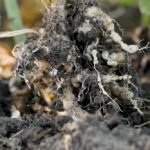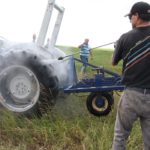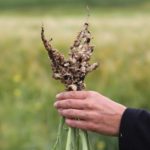Clubroot in canola is a growing problem in north-eastern Ontario, says the chair of Ontario Canola Growers.
1.

Soil-borne disease has ‘exploded’ in northeast, says canola growers chair

University of Guelph researcher says number of resistant pathotypes is expanding



An Alberta study has shown that household bleach works as well as specialized disinfectants




